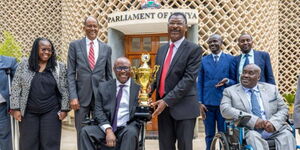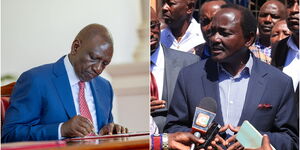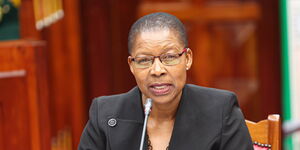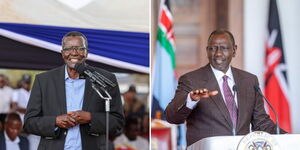The Ministry of Foreign Affairs of South Sudan has dismissed reports that the nation's President Salva Kiir Mayardit has passed away.
According to the government of the youngest nation in Africa, the allegations that emerged on Wednesday night are false and malicious. South Sudan says its Head of State is well and fully committed to serving the nation.
''The Ministry of Foreign Affairs and International Cooperation of the Republic of South Sudan categorically and strongly denies the false and malicious reports circulating on social media claiming that His Excellency President Salva Kiir Mayardit has passed away,'' the Ministry of Foreign Affairs confirmed.
''The Ministry would like to assure the South Sudanese public, the region, and the international community that H.E. President Salva Kiir Mayardit is alive, well, and fully engaged in the service of the nation. He continues to carry out his presidential duties with vigour, commitment, sound health and complete fitness.''
Furthermore, the government of South Sudan condemned the spread of the misinformation, terming it as attempts aimed at creating unnecessary panic, confusion, and instability over the president's health.
''The Ministry condemns in the strongest terms this deliberate spread of misinformation aimed at creating unnecessary panic, confusion, and instability. Such fake news only serves the interests of those who wish to undermine our nation’s sovereignty, hard-won peace, and progress," it added.
For the longest time, since its establishment as an independent state in 2011, the nation has been in a political turmoil, marked by constant power struggles between its leader and the First Vice President, Riek Machar Teny.
However, the government of the neighbouring nation has often appeared to dismiss the instability claims, maintaining that it is committed to advancing the welfare of the people and implementing its national duties ordinarily and as expected.
The situation in South Sudan has in the past forced Kenya to try to intervene by sending peace emissaries to the nation; however, these have borne little success and often almost ended up jeopardising diplomatic relations.
On March 28, President William Ruto appointed former Prime Minister Raila Odinga as Kenya’s special envoy to South Sudan following the earlier detention of the country’s first Vice President, Riek Machar.
However, in a quick turn of events, Odinga revealed that he was denied a chance to meet Machar, throwing the Kenyan intervention under the bus.
Meanwhile, President Ruto met with South Sudan’s main opposition Hold-Out Group on February 20, where they reached key agreements on the ongoing mediation process. One of the resolutions was to adjourn the Tumaini Peace Initiative talks until March 2025 to allow for further consultations, though the fate of the talks remains uncertain.
"Met the Opposition Hold-Out Group of South Sudan and agreed, at the request of the South Sudan Government delegation, that the mediation process ongoing in Nairobi adjourns until March 2025 to facilitate consultations that will inform the way forward," Ruto stated, following an earlier engagement with the representatives.
The country gained independence from Sudan on July 9, 2011, becoming the world’s newest nation after a 2011 referendum in which nearly 99 per cent of South Sudanese voted in favour of secession. The move followed decades of civil war between the North and South, largely driven by ethnic, religious, and resource-based tensions.












